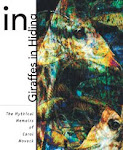How the poor and the pious of modern India find salvation in ' a great open air lunatic asylum for the divinely mad'
"Manisha Ma Bhairava worships the Goddess and engages in Tantric ceremonies in the cremation grounds at Tarapith, in Bengal. Lal Peri is a devotee of the Sufi saint Lal Shahbaz Qalander. Tashi Passang lives as a Tibetan monk in Dharamsala, in India. Hari Das is possessed nightly by a god during a cycle of theyyam ritual performances every December to February in Kerala. Rani Bai is a sacred prostitute (a devadasi) in a town in northern Karnataka. Kanai is a blind minstrel who sings with the Bauls (“crazies”), an antinomian sect, at Kenduli, in West Bengal. Mataji wanders as a member of a sect of Digambara (“sky-clad”, that is, naked) Jains at Sravanabelgola. Mohan was a low-caste singer of the epics of the cavalier hero and deity Pabuji in Rajasthan. Srikanda Stpathy is a Brahmin idol-maker in the temple town of Swamimalai in South India.
What do these nine people, the subjects of William Dalrymple’s Nine Lives, have in common? All are in some ways purveyors of the sacred, but beyond that the patterns blur. They are Hindu, Jain, Buddhist, Muslim. Four women, five men. Only one (the idol-maker Srikanda, who serves as a kind of baseline point of contrast for all the others) is a Brahmin. Six of them inherited their jobs, while three of the four women, and one man, chose to renounce conventional life for various extreme forms of religion. What binds them together is the unusual suffering that they have undergone – all but Srikanda, whose chief sorrow is that his son wants to become a computer engineer instead of carrying on the family tradition. (“I do feel there is something special in the blood”, he says: “At some level this is not a skill which can be taught.”) Dalrymple notes that many of his subjects had been brutally affected “by invasions, by massacres, and by the rise of often violent, political fundamentalist movements: a great many of the lives of the searchers and renouncers I talked to were marked by suffering, exile and frequently, great pain: a large number turned out to be escaping personal, familial or political tragedies”. As one of the devadasis remarked, “If I were to sit under a tree and tell you the sadness we have to suffer, the leaves of that tree would fall like tears”."
Read the rest of the article by Wendy Doniger via the link above.
Thursday, January 07, 2010
Subscribe to:
Post Comments (Atom)












No comments:
Post a Comment